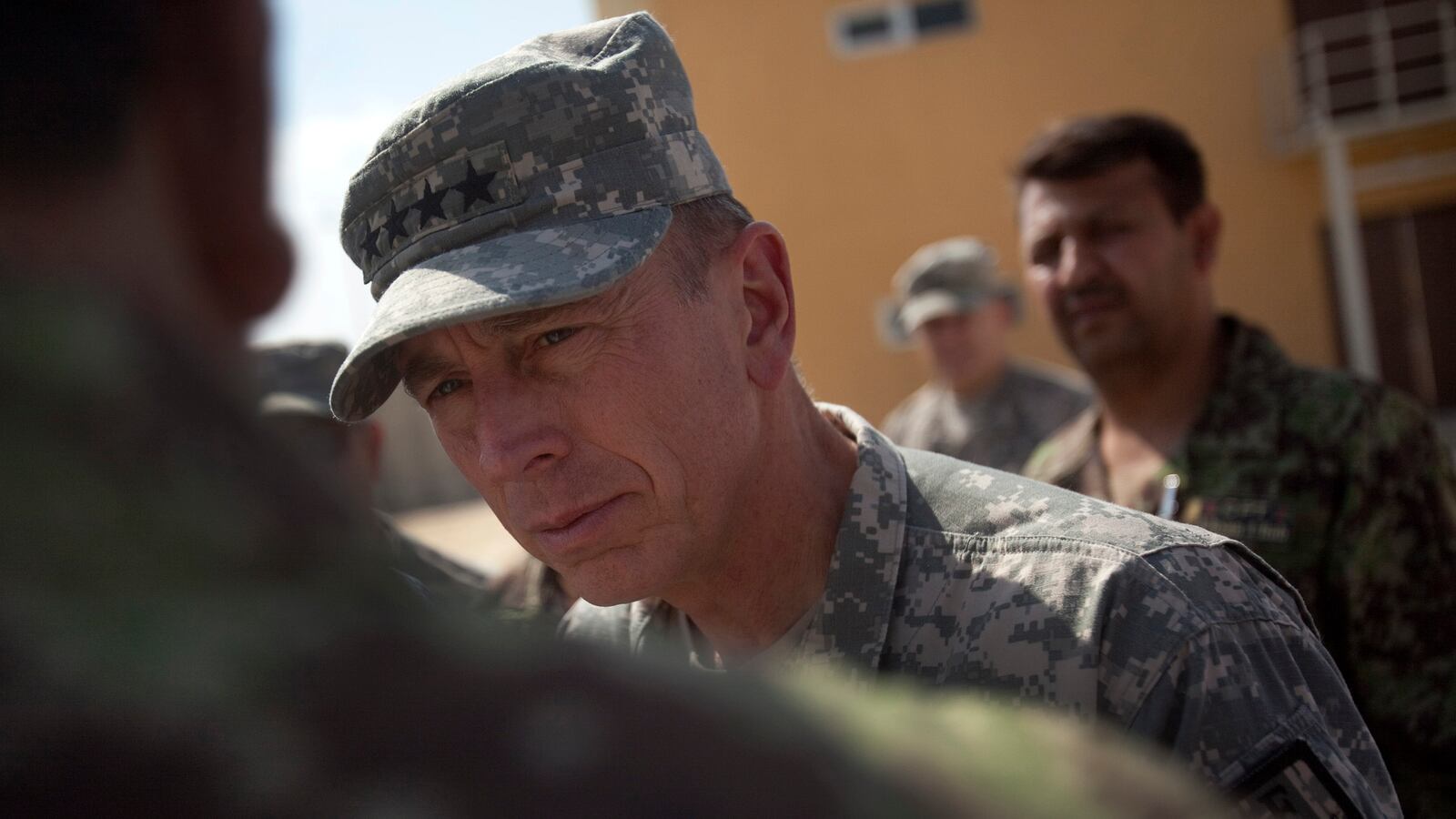
Two days after his 60th birthday, superstar David Petraeus has crashed in flames—resigning as CIA director in the wake of an extramarital affair. This, of course, a personal tragedy for him and his family. It’s also a real loss for the country. No man is indispensable, but Petraeus’s brains, drive, and combination of military and political talents did give promise that the CIA would not be his last public office. Now the circumstances of Petraeus’s resignation suggest his public career is over. Other shoes may be ready to drop, as the FBI continues its investigation into indiscreet emails that helped uncover the affair in the first place.
News of the affair did not come as a total surprise—not to those who saw Petraeus and “the woman in the case,” Paula Broadwell, together in Kabul during Petraeus’s final year in command there through July 2011. Broadwell had been working for some time on a biography of Petraeus. He had agreed to aid her project: giving long interviews, allowing his staff to talk to her, clearing the path to colleagues and mentors from earlier in his career. By that last year in Kabul, it was clear to all who saw them that the pair had established a close relationship.
Nor was it hard to understand why. Broadwell is a smart and able woman, a West Point alum, and, as a major in the Army Reserve, a sometime instructor there. She is also a fitness fanatic to rival Petraeus. (On her website, she calls herself “Runner, Skier, Surfer; Wife; Mom!”) When Petraeus was suddenly sent to take over in Afghanistan in June 2010—replacing Gen. Stanley McChrystal, whose career flamed out after his staff gossiped imprudently to a reporter—Broadwell embedded in the joint-force headquarters, where Petraeus had his command center. The buffed and handsome pair could be seen on early-morning runs around the walled compound.
Relationships between senior male officers and some trusted female staffer were once fairly commonplace. (At least by anecdote, they are less common now in an era hyperconscious of harassment.) In hierarchies as rigid as the military, a general’s life in the field can be a lonely one. There are limits to what a commander can talk about even with the most trusted subordinate. So it’s not uncommon that a female staffer becomes a more-or-less permanent fixture on some star’s personal staff: the trusted listener. Most of those relationships stop a long way short of physical intimacy. At most, they become what Edwardian Europe called an amitié amoureuse—a relationship beyond the platonic, but well short of a grand passion. The most publicized example is Ike’s relationship with Kay Summersby, his driver in World War II England. In the run-up to D-Day in 1944, General Eisenhower was under unimaginable strain; it’s clear that he found emotional comfort in a relationship with Kay. Almost as clearly, this seems not to have gone beyond an occasional cuddle.
Petraeus’s staff group in Kabul was intensely loyal to him. Some had been with him virtually since the invasion of Iraq in 2003. They knew that Petraeus had been deployed for three fourths of the time since then. By this final tour, he was close to exhaustion. If Broadwell’s company—and transparent admiration—eased Petraeus’s burdens, so be it. When an inquiring reporter asked about Broadwell, late of an evening, a raised eyebrow and a shrug were as far as one staff officer would go. One of Petraeus’s mentors, a retired Army general, did allow that he had cautioned Petraeus. He was sure nothing was out of line, he hastened to say, but “appearances matter.”
In an ironic twist of timing, the nongovernmental job that Petraeus has long hankered after—the presidency of Princeton—is coming open. Princeton’s current president, Shirley Tilghman, announced in September that she would resign at the end of the academic year. Petraeus said publicly that he would not quit the CIA for Princeton. Now he has quit the CIA, but under circumstances that make it hard to believe Princeton would welcome him.






